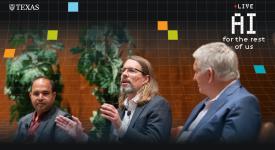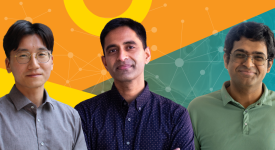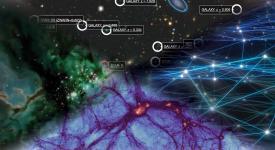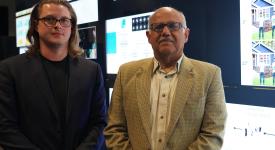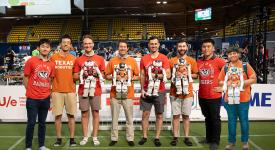Introducing: AI for the Rest of Us
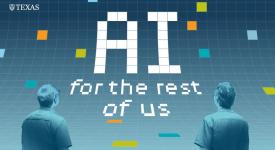
12/03/2024 - A new podcast, made in collaboration with the College of Natural Sciences and the College of Liberal Arts, will answer the burning questions in all things artificial intelligence. Guests from across campus will engage in conversations with co-hosts Marc Airhart, a science communicator for CNS and Casey Boyle, associate rhetoric professor and Digital Writing and Research Lab Director.




